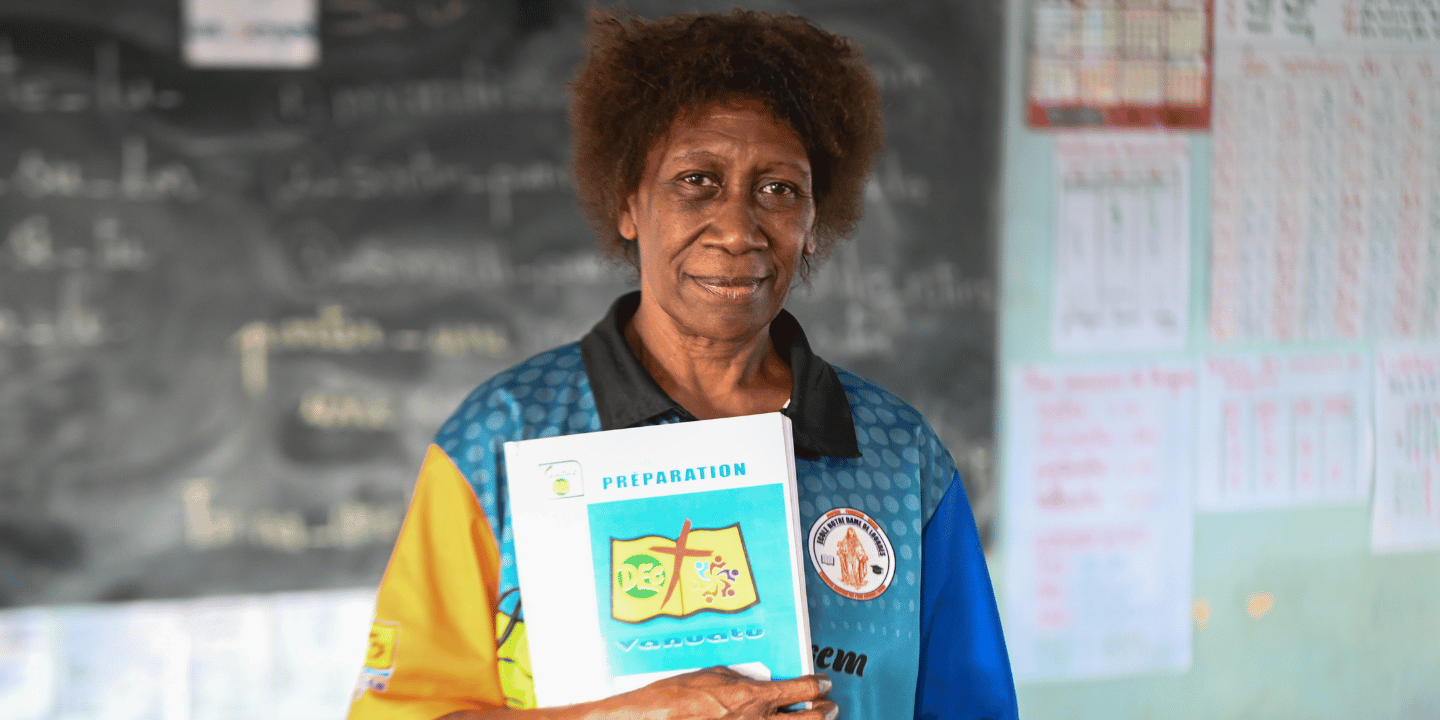
Understanding how teacher professional learning supports education reform
Research 26 Jun 2024 4 minute readNew ACER research has found that teacher professional learning has positively impacted teaching quality and student engagement in Vanuatu.
ACER has recently completed a multi-year study into how the Australian Government’s Vanuatu Education Support Program (VESP) is making a difference to teaching quality and student learning in Vanuatu.
The study revealed that VESP has strengthened elements of teaching quality, implementation of a new national curriculum and aspects of student learning. However, key changes to support structures for teachers and principals, and in-service training presents a real challenge to sustainability.
The Government of Vanuatu has been implementing significant primary education reforms to improve equity, access and quality of education. A new primary curriculum has been introduced in stages since 2016 and is accompanied by a suite of in-service teacher training and teaching and learning materials. The curriculum promotes teaching practices that support new pedagogies focused on student-centred learning, language transition and class-based assessment practices.
The study was commissioned by the Australian Government’s Department of Foreign Affairs and Trade (DFAT), to investigate teaching and learning development initiatives in 3 countries: Vanuatu, Lao People’s Democratic Republic and Timor-Leste.
The mixed methods study involved case studies in 5 of Vanuatu’s 6 provinces and secondary analysis of 3 cycles of national and regional learning assessment data. Over the course of 2019, 2021 and 2022, ACER conducted 203 interviews and focus group discussions with principals, teachers, parents, and national and provincial stakeholders, as well as classroom observations.
The study found that VESP has contributed to professional learning opportunities to improve knowledge and practice, in particular student-centred pedagogies.
‘The main shift regarding the curriculum is that it’s now student-centred and through the past years, we’ve really seen a change in the way teachers are teaching,’ said a national participant. ‘They’re teaching with the kids rather than at the kids.’
Teachers and principals in Vanuatu also highly value curriculum support resources, and opportunities to collaborate with their principals and peers. However, these opportunities are limited across most locations. Changes to in-service teacher training responsibilities and provincial structures has left a critical gap in how teachers and principals are supported.
A key message from the study is that an ongoing and continuous professional development program is needed to provide an avenue for teachers and principals to expand upon their improved practice.
The study also found that students are more interested and engaged in school as a result of student-centred pedagogies, including learning in Bislama or the vernacular.
‘With the new curriculum the students are more comfortable in class and free to voice their opinion and move around,’ said a Year 1 teacher.
However, whether VESP has impacted student learning outcomes is inconclusive. Wide variations in student achievement across the country and a consistent pattern of boys’ underperformance exist.
It is well understood that educational change takes time. In Vanuatu, long-term commitment and follow-through to implement large-scale policy changes are needed. This includes more time and support for teachers to understand and fully incorporate new approaches into their teaching practice.
In April, ACER and DFAT met with education policymakers in Port Villa to present findings and recommendations from the study. Ten recommendations were proposed to help strengthen education policies and practices in Vanuatu, based on 3 key areas:
- Strengthening the design and implementation of VESP
- Investing in professional learning
- Investing in the collection of student learning data.
The EAS Teacher Development Multi-Year Study has provided valuable insights into what is required to improve teaching quality and student learning under a new curriculum. It has also provided policymakers with evidence to support future teacher development investments in Vanuatu.
Further reading
Read Report highlights - Vanuatu: Final report